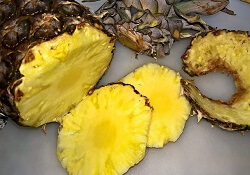What do Enzymes Do
Well if it weren’t for enzymes none of us would be here. All living things are made up of cells. We are composed of trillions of cells. Every function our body performs begins at the cellular level. From muscles to bones to our nervous system. In order for cells to survive, they need to perform or conduct a series of chemical reactions within their membrane or cell walls.
These chemical reactions are referred to as metabolism. All of the chemical reactions within the cell either start something, change something or combine something. The end result of these reactions is referred to as a product. Our cells would not have the ability to perform these reactions and produce these products without enzymes, so they are extremely important. Not only do they allow the functions to be performed, they allow the functions to be performed rapidly. A lack of them leads to disease.
What are they Made Of
You are probably wondering what they are made of. Enzymes are made up of amino acids which are the building blocks of protein. These building blocks of protein can be simple (composed of whole proteins) or complex (composed of protein plus an organic molecule). So think of enzymes as energized protein molecules that act as catalysts or helpers that speed up or initiate a reaction while performing a specific activity. Truly amazing, because they have the ability to alter the speed of a chemical reaction without undergoing a permanent change in structure.

Notice I said specific activity or reaction. The enzyme must change a chemical (referred to as a substrate) and modify it so the enzyme can produce a different end product. The enzyme has an active site which specifically matches the substrate (chemical). Think of the enzyme as a piece of a child’s puzzle. You know the ones with squares and circles and triangles. If the enzyme is square, the substrate would be square so it can fit into it and match it. You can’t put a circle substrate into a square enzyme. Each enzyme works on a specific type of reaction. Once the substrates contacts the enzyme the substrate is modified by the enzyme to produce a different end product. Once this process is complete, the enzyme releases the product and the enzyme is ready to do it again. Our body always reuses enzymes. We recycle well!
Digestive Enzymes and their Function
Digestive Enzymes commonly known as protease, amylase, lipase help the body digest protein, fats and carbohydrates are needed for our digestive system to function. These digestive enzymes are necessary to complete the digestive process and for nutrient absorption. They also help the liver for detoxification. Due to over processing of our food and cooking at high temperatures, many of these that are found naturally in our food are destroyed, which creates a deficiency. A deficiency can create problems throughout our digestive system. Check out the various forms availble from Nature’s Sunshine Products to help you with your digestion.
Energy Enzymes help our cells turn oxygen and glucose into ATP which is the energy needed by our cells to function. Without these we have no energy and no functions.
Restriction Enzymes are designed to recognize very specific patterns in DNA and have the ability to break these patterns.
DNA Manipulative Enzymes move along our DNA strands and repair them.
Enzyme Production Enzymes – yes it is what you think – we do need some to produce the cell’s enzymes.
What Affects Them
The biggest affect on enzymes are concentration (how many you have available), the temperature being too hot or too cold, and pH. Our stomach environment is very acidic due to hydrochloric acid, so those that perform reactions in the stomach are able to handle this acidic environment. Should the acidic environment of the stomach become too alkaline, it could alter the shape of the enzyme leaving it useless. Our blood, our spinal fluid, and the fluid within our cells has a neutral or slightly alkaline pH. Should the pH of these environments become acidic, this would also affect the shape of the enzymes leaving them unable to perform their functions. Are you understanding why enzymes are so important.
To sum it up, if we didn’t have enzymes we wouldn’t be alive. The ability for an organism to perform chemical reactions is what makes it living. Inanimate objects do not have the ability to perform chemical reactions because they lack enzymes. I found an interesting pdf from Enriching Gifts on Enzymes you may also like to read.
